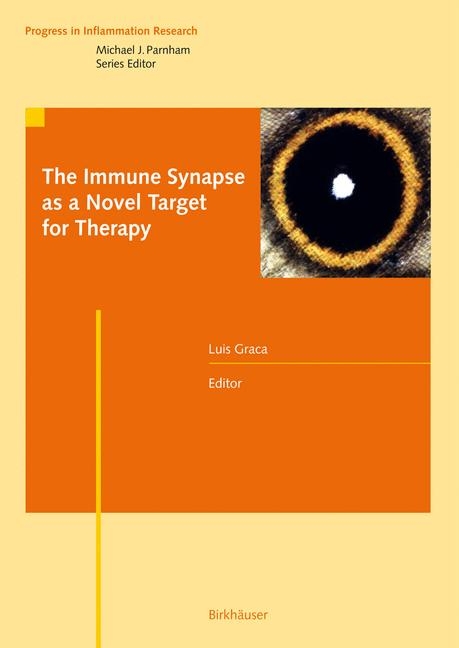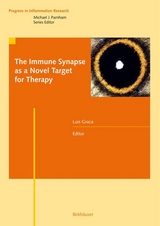The Immune Synapse as a Novel Target for Therapy
Springer Basel (Verlag)
978-3-7643-8295-7 (ISBN)
The immune synapse and T cell activation: regulation by chemokines.- The induction of regulatory T cells by targeting the immune synapse.- Infiltrating the immunological synapse: prospects for the use of altered peptide ligands for the treatment of immune pathology.- Targeting CD4 for the induction of dominant tolerance.- Anti-CD3: from T cell depletion to tolerance induction.- Immune modulation by CD40L blockade.- CTLA-4-immunoglobulin and indoleamine 2,3-dioxygenase in dominant tolerance.- Adhesion molecules as therapeutic targets.- E3 ubiquitin ligases and immune tolerance: Targeting the immune synapse from within?.- FOXP3 biochemistry will lead to novel drug approaches for vaccines and diseases that lack suppressor T cells.- Transforming growth factor-?: From its effect in T cell activation to a role in dominant tolerance.- From mice to men: the challenges of developing tolerance-inducing biological drugs for the clinic.
| Erscheint lt. Verlag | 19.10.2007 |
|---|---|
| Reihe/Serie | Progress in Inflammation Research |
| Zusatzinfo | XII, 192 p. |
| Verlagsort | Basel |
| Sprache | englisch |
| Maße | 170 x 244 mm |
| Gewicht | 610 g |
| Themenwelt | Studium ► Querschnittsbereiche ► Infektiologie / Immunologie |
| Schlagworte | Activation • Antibody • Antigen • autoimmunity • biochemistry • Cell • clinical trial • Drug • drug therapy • Hardcover, Softcover / Medizin/Nichtklinische Fächer • HC/Medizin/Nichtklinische Fächer • immune tolerance • immunity • Immunologie • immunology • Infectious Diseases • inflammation • lead • monoclonal antibodies • Regulation • Research • Synapse • T Cell • Vaccine |
| ISBN-10 | 3-7643-8295-3 / 3764382953 |
| ISBN-13 | 978-3-7643-8295-7 / 9783764382957 |
| Zustand | Neuware |
| Haben Sie eine Frage zum Produkt? |
aus dem Bereich




